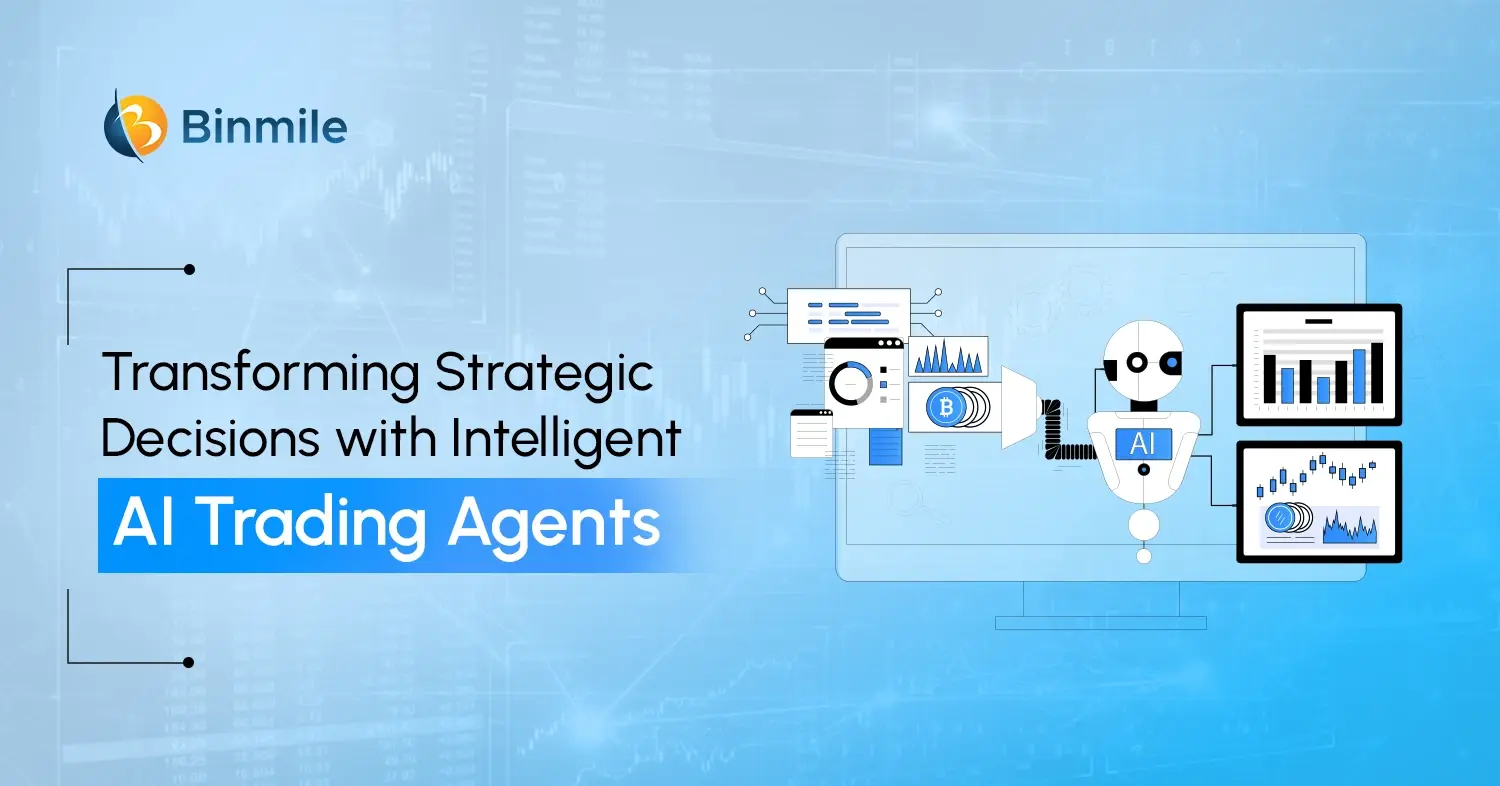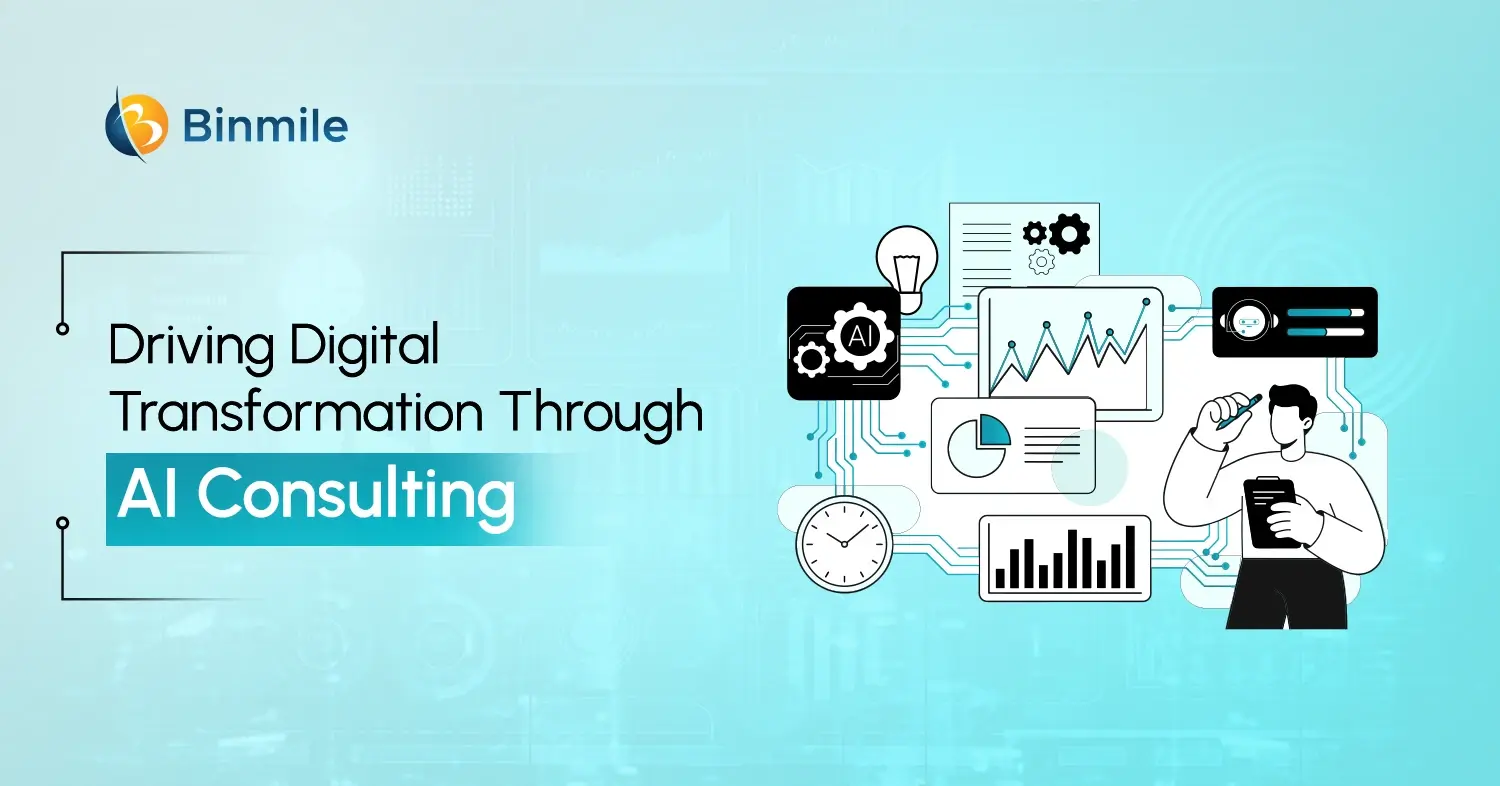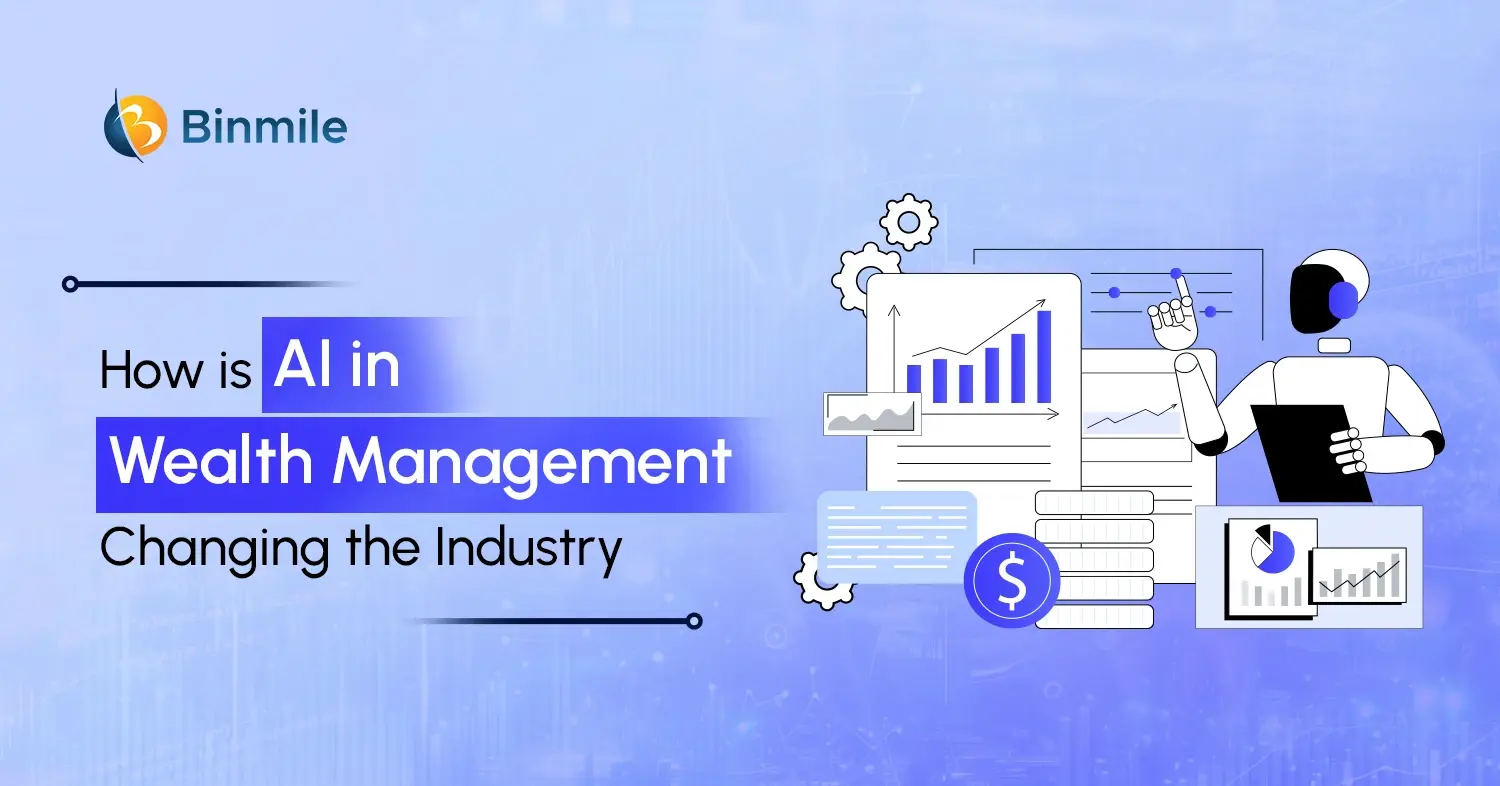Technology is the first thing that might come to your mind if you are experiencing some challenges in the modern food industry and are looking for ways to deal with them. In today’s tech-driven world, the incorporation of AI in food industry is essential to streamline day-to-day operations, sort out industry challenges, and ultimately, transform the business to a great extent.
Automation in the food sector has changed how we produce, store, cater, deliver, and consume eatables. AI technologies, such as generative AI, machine learning, data analytics, and computer vision are revolutionizing traditional agricultural methods, enhancing supply chain logistics, minimizing waste, forecasting customer demands, and improving food safety standards. Needless to say, technology is reforming almost all aspects of the food industry, from precision farming and crop yield production to customized nutrition and intelligent food delivery systems. In this blog, we will learn how automated food service is benefiting the entire food industry, but first, let’s start with:
Introduction to Robotics and AI in Food and Beverage Industry
AI acts as an imitation of human intelligence in machines that are designed to think and learn like humans. It entails a wide variety of technologies, including natural language processing, machine learning, and computer vision. These technologies allow machines to understand and react to human language and other cues.
On the other side, robotics refers to the design and development of machines that can perform tasks independently or help humans in executing different tasks. Taking the food industry example, we must tell you that robotics is used to automate several processes, like:
- Ingredient sorting
- Packaging
- Cooking
Role of AI in Food Processing Industry
Artificial Intelligence has multiple applications in the food industry. One of the best use cases of AI in food industry is quality control. AI algorithms can analyze a huge amount of data, like sensory data and product information, to ensure that food products meet specific standards. This not only enhances the product quality but also drives down the risk of contamination and recalls.
Another area where artificial intelligence is making an impact is the creation of new recipes and flavors. By analyzing buyer preferences, nutritional requirements, and the mixture of ingredients, AI algorithms can produce innovative and customized recipes that focus on specific tastes and dietary requirements.
Role of Robotics in the Food Industry
Robotics has also revolutionized many aspects of the food industry. For example, robots are utilized to automate repetitive and labor-intensive tasks, like packaging and palletizing in production facilities. This not only boosts efficiency but also lowers the risk of human mistakes and workplace injuries.
In restaurants and food preparation units, these food processing industry trends are being exploited to help with food making and delivery. For instance, robotic arms can cut vegetables, mix ingredients, and even cook food with accuracy and consistency. In addition to that, autonomous delivery robots are being utilized to transport food orders from one place to another, ensuring on-time and accurate deliveries. And this is the reason, the food robotics market worldwide is predicted to rise to almost 5.4 billion units by the end of 2030, as per the data received from a global data and business intelligence platform.
Advantages of Integrating AI in Food Industry
Applying AI in food industry can lead to a myriad of opportunities by improving efficiency, accuracy, and safety. These advancements result in cost savings, enhanced consumer experiences, and sustainable practices. Let’s gain deeper insights:

1: Improved Precision and Consistency
AI in food and beverage industry can carry out repetitive tasks with great accuracy, making sure of consistent quality and minimizing human mistakes. It is necessary in food preparation, as even minor changes can impact taste and safety. Apart from that, AI systems can monitor and alter recipes in real-time, making sure that each cuisine meets the same high standards. This not only takes the dining experience to the next level but also builds buyer trust and loyalty.
2: Increased Efficiency
AI in food processing industry can work continuously without any interruption, translating into increased productivity. They can complete tasks quicker than human workers, ensuring quicker turnaround times and enhanced operational efficiency. Furthermore, AI in inventory management and supply chain logistics can be incorporated to streamline operations and reduce downtime, further increasing overall efficiency.
3: Enhanced Safety and Hygiene
Robots have the ability to work in environments hazardous to human health, like areas with extreme temperatures or exposure to harmful substances. In the food service industry, systems developed using AI innovations ensure high hygiene standards, which are required for proper food handling and preparation. By automating tasks that need direct food contact, artificial intelligence technology mitigates the risk of contamination and improves compliance with strict health and safety protocols. This not only safeguards workers but also assures patrons of the highest safety and cleanliness standards.
4: Better Customer Experience
With AI food manufacturing, enterprises can provide more personalized and consistent food products. Fast service, high-quality results, and the potential to meet the specific preferences of consumers help achieve superior customer experiences. Additionally, AI-powered insights into buyer preferences can guide menu development and promotional techniques, designing a more customized and pleasing dining experience. Advanced predictive analytics contribute to better inventory management, lowering waste, and ensuring fresh substances. Besides all this, AI-backed quality control systems improve food safety standards, reducing the risk of contamination and gaining customer trust.
5: Flexibility and Scalability
Artificial Intelligence technology in the food sector can be programmed and reprogrammed effortlessly to manage different tasks, rendering great flexibility to business owners. When demand changes, the same robotic systems can augment or reduce production without the need for reconfiguration. This adaptability enables establishments to respond swiftly to market trends and seasonal demands, helping to maintain efficiency and competitiveness. If you also want to develop such a robotic system for your business using AI, do not forget to hire AI developer as soon as possible.
6: Cost Reduction
Putting your money in artificial intelligence and robotics isn’t just a technological update, but a strategic move towards accomplishing long-term savings. These advanced technologies decrease labor costs by automating repetitive tasks, while accuracy and efficiency reduce waste and error rates. Aside from that, AI-driven predictive maintenance estimates and prevent machinery failures, minimizing downtime and related repair costs. This proactive approach makes sure of uninterrupted and cost-effective operations, allowing companies to reinvest their savings into growth and evolution, such as on-demand app development services.
7: Waste Reduction and Sustainability
Incorporating AI in food industry can transform sustainable practices by considerably improving:
- Resource optimization
- Waste reduction
- Energy efficiency
This incorporation not just helps in accomplishing strict environmental goals but also strengthens the organization’s reputation for sustainability.
Advanced AI algorithms can accurately forecast demand, thus reducing overproduction and resulting food waste. Beyond this, these algorithms support sustainable sourcing methods by confirming efficient usage of resources throughout the supply chain.
8: Data-Driven Decision Making
Systems developed using AI programming languages can gather and analyze data on production processes, customer preferences, and machinery performance. This data-driven strategy helps companies make informed decisions, improve operations, and innovate in product development.
By making the most of real-time analytics, artificial intelligence can identify inefficiencies and indicate areas for improvement, promoting a culture of continuous improvement. Moreover, predictive analytics can predict market trends and customer behavior, offering a competitive edge in the market and simplifying proactive approaches. This holistic use of data converts raw information into actionable insights, assisting in sustainable growth and operational excellence. In case you want to develop an AI-based application to get in-depth insights into your food operations, it is a wise decision to avail AI as a Service from a top AI development company.
Ready to taste the future? Discover how robotics and AI are serving up innovation in the food industry—dig in now!

Top 4 Examples of Businesses Using AI in Food Industry
A multitude of food brands are taking advantage of artificial intelligence and machine learning technologies for different purposes. Below you can see more than one food industry example that is using AI technology:

1. Starbucks
Starbucks is one food industry example that utilizes AI-driven personalization to offer consumers customized recommendations in its mobile application. The app analyzes previous orders, preferences, and location data to create personalized food and drink recommendations for all users.
2. Coca-Cola
Coca-Cola relies on AI and ML algorithms to streamline its distribution and supply chain. Artificial Intelligence technology helps in accurately estimating demand, making sure that inventories are accessible as and when required, reducing the chances of stockouts and overstock.
3. Nestle
Nestle deploys artificial intelligence technology to create and enhance its products. AI-driven platforms analyze market data, social media trends, and consumer input to recognize new food trends and develop products that fulfill the needs of the market. These applications of AI in food and beverage industry highlight how AI and ML transform the food industry by encouraging creativity, efficiency, and customer-oriented strategies to:
- Food production
- Supply chain management
- Consumer experience
4. Beyond Meat
Beyond Meat uses AI in food industry to continuously improve the flavor and texture of its meat alternatives. The artificial intelligence technology analyzes sensory data, user feedback, and ingredient profiles in order to enhance the flavor and consistency of the products of this plant-based food brand.
Hungry to innovate? Discover how robotics and AI are transforming the food industry—and let us help you serve up your own game-changing AI solutions!

Leverage Opportunities in Your Food Business with Binmile’s AI Development Services
At Binmile, our software development team grasps the data’s role in the implementation of ML and AI in food industry. Therefore, we offer scalable AI development services intended to help your business fetch valuable insights from the considerable amount of structured and unstructured data it generates in different formats. We collaborate with businesses to build state-of-the-art AI-powered solutions that smoothly incorporate into their operations. By keeping every client’s unique needs and objectives in mind, we build top-notch apps that drive innovation and efficiency.
Our strategy involves every stage of development, from initial conceptualization to frontend and backend development and rigorous testing. Through the dedication and expertise of our team, Binmile never fails to deliver excellent AI solutions, emerging as a leading player in the IT industry.
Now, if you also want to experience the actual potential of AI in food industry, you need to avail our AI consulting solutions. Using our extensive experience, you can easily identify and use crucial data that will help you make informed business decisions. Get in touch with our IT experts right away to learn more about our AI development services and how they can benefit your establishment.









